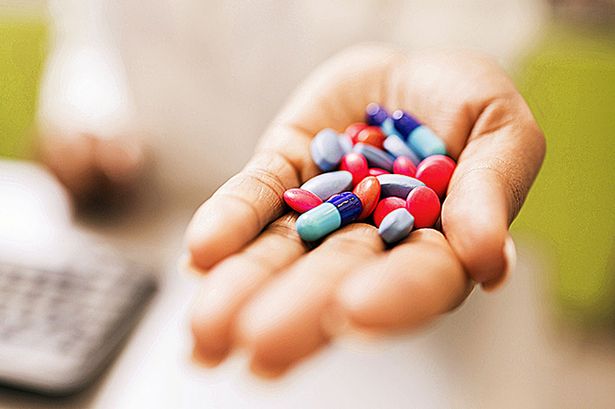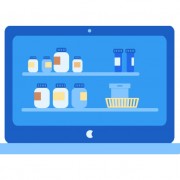When Do Antibiotics Help and When Don’t They?
People have to fight with diseases daily. The majority thinks that the best treatment is an antibiotic. But do they really help or harm us?
What Antibiotics Were Created for?

Doctors consider the invention of antibiotics to be the greatest event in the sphere of medicine. They save millions of lives, day after day. Antibiotics help us deal with bacterial infection, but they are not effective in case of bacterial viruses. If you use them without doctor’s consultation, they will bring only harm to your health.
Some Facts About Antibiotics Learned During Trials
It’s a well-known fact that one course of antibiotic medication is enough to ruin the microflora of bowels for an entire year. This conclusion was made by foreign scientists. They tested sixty Britons and Swedes. All of them were taking one course of antibiotics of different brands and types. The analyses of the experiment showed that the microflora of patients had seriously changed after the medication. Some microorganisms were too stable. This fact causes digestion problems. There are people who take antibiotics feeling a little bit unwell. Some patients refuse to follow health adviser’s recommendations having severe infection and try to save themselves with the help of herbs. All of them make a big mistake and worsen their health condition.
Antibiotic is an irreplaceable medical innovation that kills bacterial infection and saves human lives. Just imagine that earlier patients died because of angina or pneumonia. There is one wise question: “Do people always need to take them?”
Hidden Danger of Antibiotic Usage

Few people know that there are two types of bacteria: “friendly” (those which help us to struggle with diseases on early stages) and “hostile” (those which attack our organism aiming to destroy it). The first type is vitally important for us. You may hear or see the advertisements of some bio yoghurts that have those useful bacteria for better digestion. The problem is that antibiotics annihilate both types. They resemble blind newborn dogs that try to find something warm and don’t differentiate between their mom and human hands.
The pills also provoke the following side effects like:
- Diarrhea
- Vomiting
- Nausea
- Vaginal infection
- Allergic reaction (itching, swelling of the face, throat, tongue and even problems with breathing)
- Problems with liver and kidney.
In what Cases Antibiotics are NOT Required?
When people catch a cold they rush to the local drugstore and ask for antibiotics. They want to kill the virus as quickly as possible because of their work, study, personal plans, etc. This is the biggest mistake.
REMEMBER! Antibiotics cannot cope with viruses!
If you think that you have caught a cold, then it is better to buy some antivirus drugs and vitamins. Other drugs will kill virus and vitamins will help to do it faster and make the organism stronger.
Diseases Caused by Viruses:
- Chill
- Flu
- Measles
- German measles
- Chicken pox
- Periodontitis
- Herpes
- Hepatitis (A, B, C) and others.
The antibiotics are prescribed only in case of:
- Complications caused by virus
- Absence of improvement during 10 days
- Fever
Information to Remember
Some diseases have common symptoms but one health problem was created by virus and the other by bacteria. That’s why it is demanded not to listen to your friends, relatives, neighbors or articles in the newspaper. See your health adviser and do some tests. Only in that case the medication will help. Don’t play with your health.
Why Do I Have Candidiasis and Dysbiosis after Antibiotics?
Antibiotics kill useful bacteria with fight with fungal infection. Mycotic infection harms gut organisms and brings such unpleasant disorders like candidiasis and disbacteriosis. That’s why doctor’s advice is so necessary for you to buy the medicines you need. If you get stronger antibiotics, you may get serious complications. If you don’t finish the medication because you feel better in few days, the bacteria may come back.
When to Use Antibiotics?
In the period of acute condition of chronic diseases antibiotics are usually prescribed. To such diseases belong chronic bronchitis and pyelonephritis or strep throat, for example. They are necessary in cases of serious bacterial infections. If you don’t stop bacterial infection, you can get blood poisoning that can lead to death.
What are the Best Antibiotics ever?
Here is the list of the most popular and best sold antibiotics:
- Zithromax
- Amoxicillin
- Bactrim
- Fragyl
- Cipro
- Erythromycin
- Tetracycline
- Ampicillin
- Amikacin
These are only to name a few.
Would you like to learn more about Zithromax and Amoxicillin? Read this information at My Canadian Pharmacy:
www.mycanadianpharmacyrx.com/zithromax-azithromycin.html
www.mycanadianpharmacyrx.com/amoxicillin-and-its-pros-and-cons.html
The Classification of Antibiotics
According to the origin:
- Natural
- Semisynthetic
- Natural at the beginning and then artificially synthesized
Synthetic:
- According to their way of action:
- Antifungal
- Antibacterial
- Antineoplastic
There are also antibiotics of wide and narrow range of actions. The second type is more exact and doesn’t affect microflora greatly.
How to Use Them?
Antibiotics are produced like pills and powder-like substances which are generally dissolved in the water for injections, isotonic (0,9%) solution of sodium chloride, Novocain or Lidocaine. So, they can be taken orally or intravenously. It can be also made in the shape of ointment, mostly, for skin infection.
Antibiotics and Alcohol: Can I Use Them Both at The Same Time?
It is not recommended to take antibiotics and drink alcohol. Their combination may cause serious side effects like nausea, vomiting, convulsions, shortness of breath and even death.










